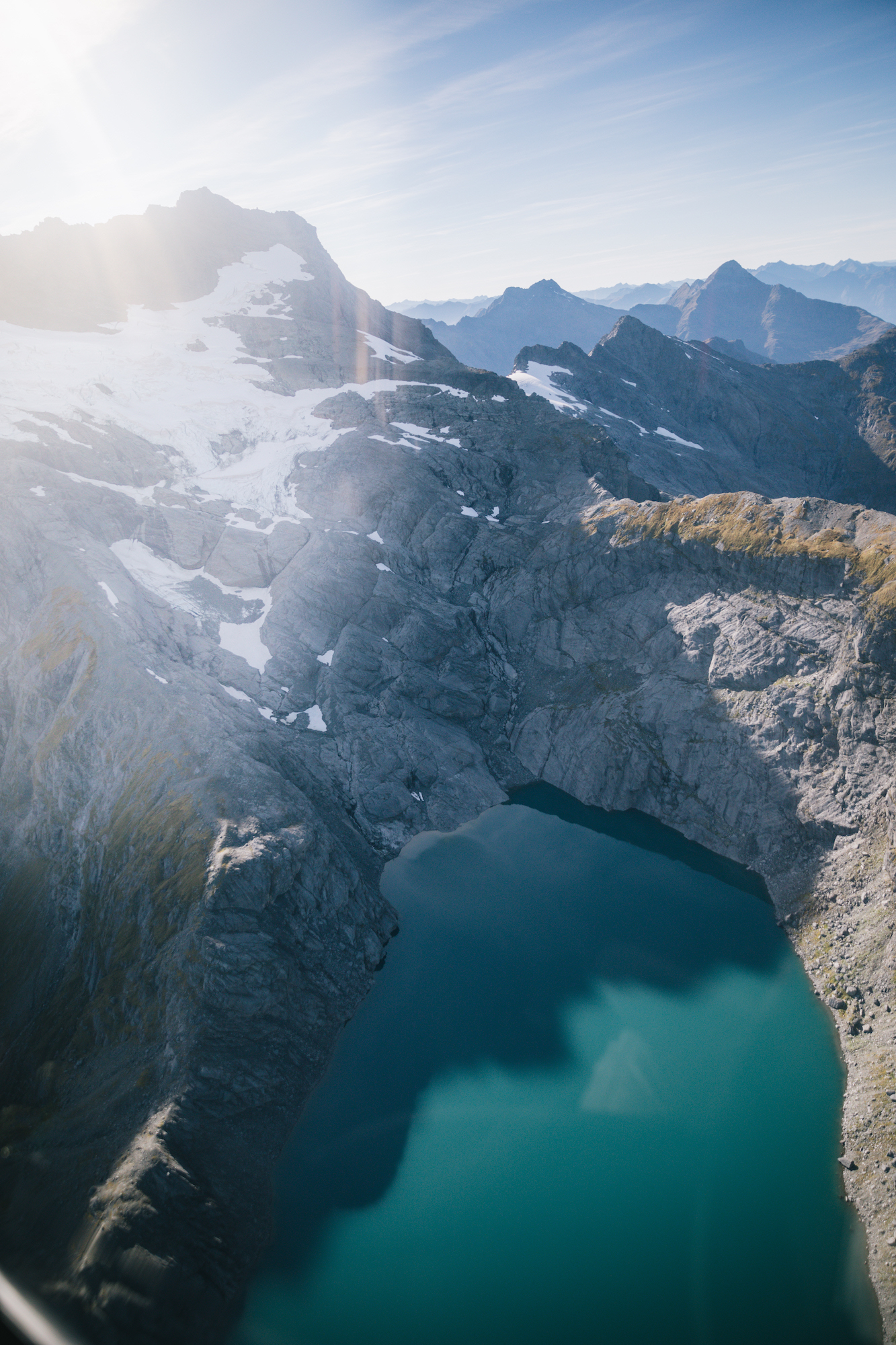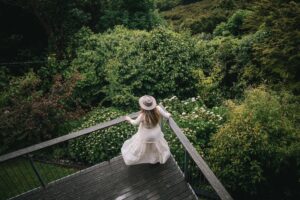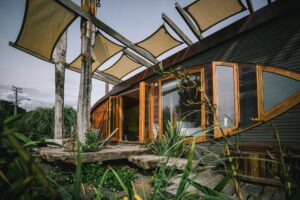Since I first moved to Wanaka nearly ten years ago, the mountains began calling me. Growing up on the suburban east coast of the USA, we had the rolling Blue Ridge Mountains on my back door. Beautiful and historic, they’re so different from the spikey alpine peaks that decorate the Wanaka skyline.
Once I moved to New Zealand, I really got into tramping, ticking long walks and bigger adventures off my bucket list year after year. One of the first adventures I ever did was flying into the Siberia Valley in the heart of Mt. Aspiring National Park. Dropping our packs at the Siberia Hut, my friends and I made our way up to Lake Crucible for the day. I can still remember being nervous.
Back then, there wasn’t heaps of info online, and I knew there were quite a few river crossings, something I hadn’t done on my own before. The next day I tramped a few hours down the track to get picked up on a jet boat back to Makarora while others at the hut were heading over the iconic Gillespie Pass. I knew one day I would go back!
6 epic backcountry adventures for first-time solo trampers


When I saw that the NZ Mountain Safety Council released one of their amazing tramping videos about the Gillespie Pass Circuit this summer, I knew it was my time to tackle it. With many kilometers under melt and now years of experience tramping in the New Zealand backcountry, I was ready to solo tramp the Gillespie Pass for the first time.
Over fifty kilometers long, with a thousand meters ascent and descent on the same day over the pass itself, I knew it was going to be really hard for me. But when things get hard are when I thrive. I find a lot of joy in challenging myself physically in the mountains and coming out on the other side.
For me, there is a lot of therapy in nature. It’s been a tough summer, as I navigate a new path that I wasn’t expecting. Being able to escape into the hills, breathing in the fresh air, and not having my phone ping have been absolute lifesavers. It’s given me the space to think, create, ponder and dream. I value it. Can you relate?
The Gillespie Pass Circuit is a relatively tricky 3-4 day tramp in Mt. Aspiring National Park. Beautiful beech forests, alpine rivers and meadows, and an incredible climb over the Gillespie Pass itself make it one of the best hikes I’ve ever done. Also, one of the hardest.
A tried and true diehard solo traveler, I knew I wanted to solo tramp the Gillespie Pass all on my own. I enjoyed the challenge of it. A notorious track that’s claimed quite a few lives over the years (all drownings), I knew I was going to be smart about it. The track’s start and end can involve two river crossings that can only be described as HECTIC under the best of circumstances. I don’t like crossing rivers above my mid-thigh alone, so I knew I would opt for transfers in and out of the track.
The rivers might look blue and picturesque, but they can flood quickly. Even the tiny creeks you cross can turn into torrents quickly. The creek two minutes from Siberia Hut can easily become flooded, making the hut inaccessible.


River crossings are a significant cause of tramping deaths in New Zealand. From underestimating rivers, choosing the wrong place to cross, crossing in bad weather, or when the river is flooded, it is essential to respect Mother Natch here in Aotearoa.
Warning signs of an unsafe river according to NZ Mountain Safety Council:
- Water moving faster than average walking pace
- Discolored, cloudy, surging water
- Visible debris in the river, such as tree branches
- The sound of rolling boulders on the river bed
If in doubt, stay out.


You can opt-out of the river crossings by organizing the Gillespie Pass track transport. You can get the jetboat in and out of the Young River mouth and avoid crossing the Makarora River. And you can jetboat in and out of the Kerin Forks Hut track side of the river, both with Wilkin River Jets. You can also fly into the Siberia Valley by helicopter organized by the same guys.
Wilkin River Jets are the guys that offer the Siberia Wilderness Experience, which I did about seven years ago – New Zealand’s best day adventure.
You fly into the Siberia Valley with a day pack, get a scenic helicopter flight around the stunning Mt. Aspiring National Park like a total badass, then get dropped off in the valley. You then hike for a few hours along the Wilkin side of the Gillespie Pass before getting picked up by jet boat and headed back to Makarora. It’s an epic way to get a taste of the area.


Since I was a bit strapped for time, I opted to fly into the Siberia Valley to start the tramp, especially since I had already walked that side before.
Wilkin River Jets flew me in with my pack to the Siberia Hut and a few other trampers keen to take advantage of an epic weather window. Siberia Hut is one of those famous DOC huts that require bookings in advance in the summertime. It’s very much a crossroads in Mt. Aspiring, so it’s always busy, and it’s an excellent base for adventures.
With beautiful weather on the horizon and my book draft turned into my editor the day before, I knew I needed to escape to the mountains for a few days. To solo tramp, the Gillespie Pass was just what the doctor ordered!


After reading all about it, talking to friends, digging through the Plan My Walk app, and registering my plans, I packed up and headed off to Makarora on the first day of autumn. Don’t worry; it was still very much summertime. A fact which I promptly forgot.
Dropping my pack at the hut, I grabbed my day pack and started the walk up to the iconic Lake Crucible, a stunning turquoise alpine lake. Lake Crucible is a popular day trip on the Gillespie Pass; as it’s off the main track, a 6-8 return from the hut, it’s not all that short of a walk.
The sun was beginning to peak over the valley’s steep sides as I wove my away along the most stunning track. I was joined by a kind lady I met earlier who wanted to go up to the lake but didn’t want to alone.


And here, dear friends, is where I made one of my first mistakes of the trip.
I’m one of those people who struggle to eat in the morning. I usually don’t eat anything before noon; I don’t have the appetite. But when you’re doing something physically challenging like tramping, you need that morning energy from food, and you have to keep eating all day to keep it up. I didn’t eat enough that morning, which I would feel the effects from soon.
Once you walk along the valley floor, crossing a few smaller rivers and creeks (which can rise quickly), you’ll come to a steep climb in the beech forest with one more creek to cross before leveling out in the basin before climbing up a moraine wall to the lake. Before long, the bright sun was beating down on us, but with the lovely mountain breeze, I didn’t really feel the impact of it. Suddenly, as I could see the lake in the distance, I started to feel off. Like not good. I was feeling so hot yet shivering, my arms and legs felt weak, and the color sort of disappeared from the world. I thought I was going to spew or faint or both.
Uh oh.


Without realizing it, I was well on my way to heatstroke, I believe. It was a piping hot day, and I was overheating badly. I slowly made my way up to the lake before immediately submerging myself in the icy water. After scarfing down a lunch I had put off eating until I got to the lake (mistake) and resting with my feet in the water, I started to feel much better, just a bit weak.
I was so focused on other parts of the tramp that I forgot the most essential and basic care of myself. Eat well and a lot, hydrate a lot and wear a hat and sunscreen.
I made my way back to the hut, which took me 8 hours to return. I was happy to arrive at Lake Crucible. I was going to monitor how I was feeling. If I woke up feeling crook, I wouldn’t attempt to go over the pass the next day.


After a nice big dinner and catching up with the ranger, who I met in an amazingly kiwi small world moment while I was in Antarctica years ago, I hit the sack.
I felt pretty good the following day, so I had a big brekkie and hit the track. Today was the most significant day climbing over the 1600 meter Gillespie Pass. With no water above the bush line, you must make sure you fill up in the last rivers and creeks before attempting the traverse. Retracing my steps back up the valley, the long climb through the beech began, which I found not as steep as expected.
You can walk the Gillespie Pass in either direction, though most people begin from the other side on the Young Valley, while I was attempting from the Siberia side. This means that I had a longer, less steep, but still steep climb up with a super steep descent. Generally, people say it’s harder and longer to walk in this direction. I say it’ll be hard no matter what.


The suggested DOC times between the Young Hut and Siberia Hut are 6-8 hours. It took me 12. Holy crap. I’m never usually over these suggested times, and I heard from many people that it takes them much longer to complete than traverse than expected. This means you need to build in extra time, especially once the days become shorter. When planning to solo tramp the Gillespie Pass, factor in extra time.
Granted, I’m always extra prepared. If I get stuck, I carry an emergency bivy and even an extra mat if the huts are full. I knew I would be slow after feeling sick the day before, so I just took my time. I was also taking many photos, birding and botanizing, two of my favorite things. But still, I was shocked it took me so long to solo tramp the Gillespie Pass, and I regret not starting earlier.
Especially since I took photos of the sunset along the Young Valley, which meant that I had to walk the last hour and a half to the hut through the forest in the dark, which I didn’t love, the orange markers weren’t super easy to spot in the dark, even with my excellent head torch. I didn’t get to Young Hut til 10 pm.


The pass itself was one of the most beautiful days I’ve ever had tramping. The views were incredible as you walk along the top, with rock wrens, kea, and pipits to keep you company. Lorded over by Mt. Awful and Mt. Dreadful (someone had a bad day while naming these), the views alone were worth it. The alpine plants were terrific, and all of the delicious snowberries were ready to be eaten by the handful.
Even though I was sick and the traverse was challenging, it wasn’t as hard or as steep as I thought it would be.
That being said, I would say it’s definitely a track for experienced trampers in New Zealand. It’s a lot of root climbing, climbing over boulders, big steps up and down, and very long days. You have to be smart where you step, and hiking poles helped tremendously. There weren’t really any parts on the traverse where I felt like I might fall off the mountain, even on the steep descent. But you did need to have your wits about you. You must make sure you chose the right spots to plant your feet.

By day three, with wet boots, my feet were peeling and painful. Several of my precious toenails showed imminent signs of falling off; I still felt a bit weak. My quads were killing me, and once again, I should have allowed for more time. I gave myself 7 hours to get to the jetboat pick-up when I should have allocated longer.
The 20-kilometer long walk out of the valley is meant to be relatively easy. However, it’s still very long, with many ups and downs over tree roots in the forest. On another super hot day, I found myself a lot slower than usual. Usually, I’m pretty fast on the last day. Motivated by the finish line and the prospect of taking off my boots once and for all, scarfing down a gigantic burger with no regrets, I can be fast. This time I was slow – feeling a bit weak, I made sure I was extra careful everywhere I stood and climbed. I didn’t want to stumble and injure myself.
But I was tired. It took me over 8 hours to walk out, and I missed my jetboat pick-up. Unsure of what to do, I kept going before the Wilkin jetboat driver popped out on the trail looking for me. Wow. I was super grateful and super embarrassed at the same time. Helping me with my pack, we walked the last few kilometers together before boosting back to Makarora on the jetboat. The jetboat in and out of the Young Valley is really affordable at only $25.
You can also carry on for an additional seven kilometers and use the bridge at the Blue Pools to cross the river. It’s an extra 1.5-2 hours, but it means no river crossing to start or finish the track.


To solo tramp, the Gillespie Pass is not an easy undertaking. Even with all of my mistakes, I got fortunate. Even with my experience, you can easily stuff up in the bush with high consequences. While I felt really prepared and followed all of the right steps, there are still quite a few things I could have done better.
I should have budgeted in more time for each day, ensuring I ate plenty of food and snacked a lot more on the track itself. I drank lots of water but could have probably drunk even more and made sure to wear a hat and sunscreen the whole time I walked.
I got fortunate that the Wilkin Jetboats came to look for me when I missed my pick-up. I always register my intent on the Plan My Walk app, with friends, and in this case, with transport. It was a fantastic adventure I appreciate all the more in retrospect, and I’m grateful for the lessons I’m taking away from it. To solo tramp the Gillespie Pass might be my new greatest tramping achievement.
Have you ever done something similar? What’s the most challenging track you’ve tackled? Any tips to add? Share!

Many thanks to NZ Mountain Safety Council for supporting me this summer on the tracks. Like always, I’m keeping it real; all opinions are my own like you could expect less from me.
The post A solo adventure on the Gillespie Pass appeared first on Young Adventuress.




